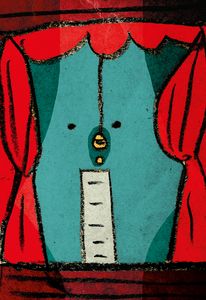M. Venkaiah Naidu often talks about what others are talking about him. When the vice president was requested to release the regional languages editions of a book on Emergency written by Prasar Bharti chairman A. Surya Prakash, Naidu asked himself if his holding the constitutional office permitted him to speak on an overtly political subject.
Vice presidents have long been the favourite chief guests for book releases. In fact, a mini hall for releasing books was built two decades ago in the compound that houses the vice president’s office and residence. Naidu upgraded the hall to a bigger auditorium with a stage, though the first function held there was not a book release, but benediction by spiritual leader Mata Amritanandamayi.
Naidu himself answered his question. The vice president, who is also the chairman of the Rajya Sabha, cannot shy away from issues in which the Constitution and parliamentary democracy are discussed. However, he imposed a condition that no names would be mentioned. But the packed audience knew whom he was referring to when he mentioned the speaker of the day or the judges of the Supreme Court, or the extraconstitutional coterie that ran the draconian suppression of democratic rights during 1975-77.
Naidu, who first went underground and was later imprisoned, did not name Indira Gandhi or any other Congress leader, but mentioned some of his longtime colleagues in the opposition—Narendra Modi and Subramanian Swamy (underground), George Fernandes (underground and jail), H.D. Deve Gowda, Arun Jaitley and Lalu Prasad (jail).
Naidu’s question also triggered a debate on should the vice president be as apolitical as the president, who takes oath under Article 60 of the Constitution to “preserve, protect and defend the Constitution and the law”. That is why presidents give up membership of political parties once they are nominated as candidates, and remain aloof from party politics even after retirement. Pranab Mukherjee took the Twitter handle #citizenmukherjee to aver that he was just a citizen, though his attending a conference of the RSS has been fully exploited by the sangh for self promotion.
Presidents have been so aloof from politics that nine of them—from Rajendra Prasad to Shankar Dayal Sharma—did not vote in any election while at the Rashtrapati Bhavan. The tenth president, K.R. Narayanan, broke this convention saying, “I am the president, but I am also a citizen-voter”. Pratibha Patil and Mukherjee also voted, while no election has come up yet for Ram Nath Kovind.
The only other functionaries who take an oath to protect and defend the Constitution are governors. The vice president, prime minister, chief ministers, Supreme Court and High Court judges, Union and state ministers, and members of Parliament and assemblies all commit only to “bear true faith and allegiance to the Constitution”.
The tradition, however, has been that vice presidents remained apolitical. In fact, some of them, like S. Radhakrishnan and Zakir Husain (academia), M. Hidayatullah (judiciary), and Hamid Ansari (diplomacy) had no political background.
Naidu has to remain above politics for two reasons—in case of an emergency, the vice president becomes the acting president, and, secondly, he has to preside over the Rajya Sabha in a bipartisan way. Naidu, however, has used both subtle and not-so-subtle ways to give his comments on politics and administration since he left the BJP. He has become an ardent supporter and vocal defender of Narendra Modi’s politics, and uses strong words to disapprove of what he feels is disruptive and unconstructive politics of the opposition parties.
After all, the fight against Emergency was to preserve fundamental freedoms, which included the freedom of expression. Naidu uses the choice to express himself strongly, even if it means walking close to the Lakshman Rekha drawn for holders of high constitutional offices.
sachi@theweek.in


